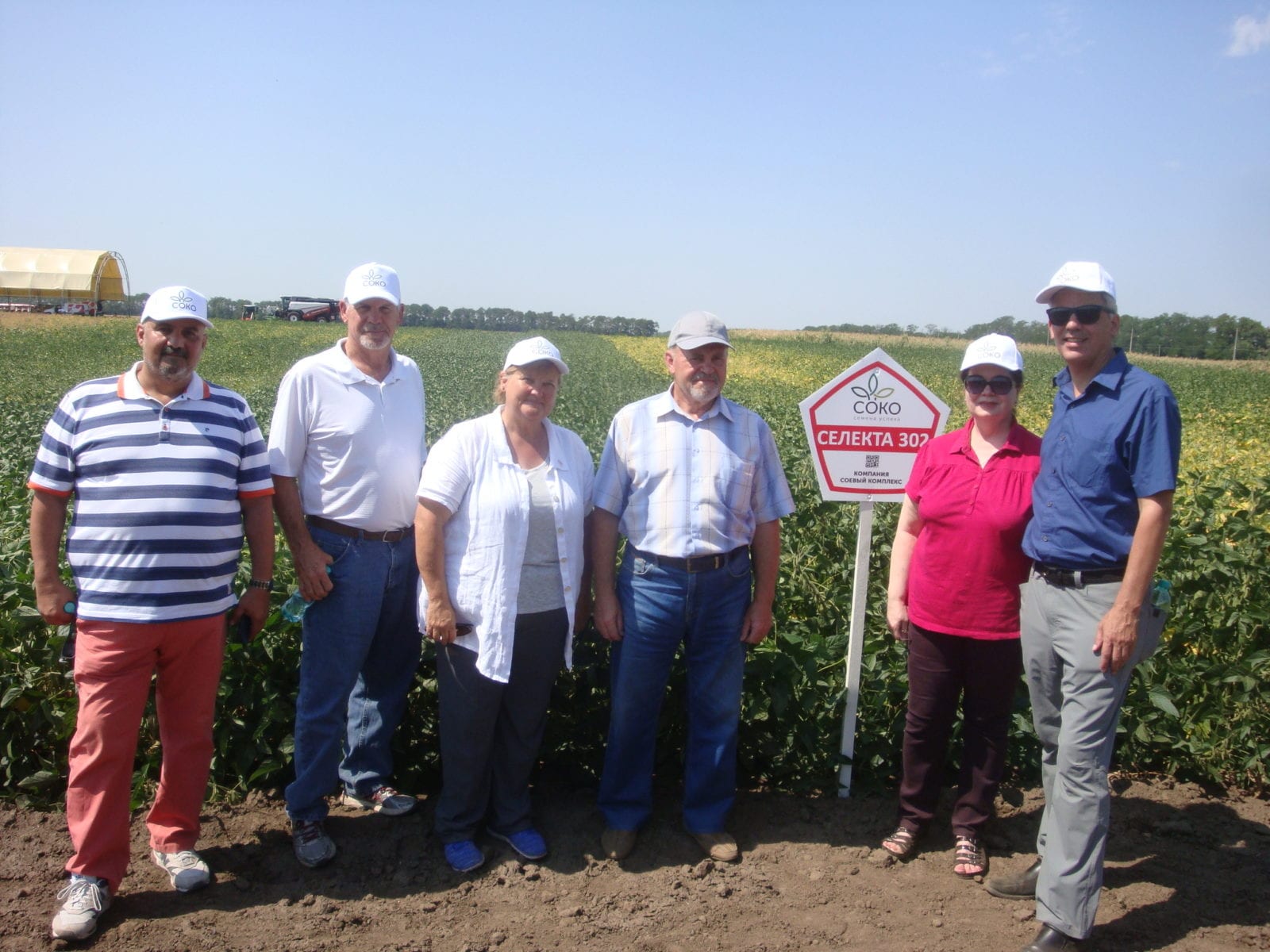
American Soybean Association (ASA) director Dennis Fujan and United Soybean Board (USB) director April Hemmes visited Russia in early August to investigate soybean production in the country; current soybean demand and market development; constraints and perspectives for import of U.S. soybeans; and to promote U.S. soybeans.
The team travelled to the Krasnodar region, the heart of one of the main soybean growing areas in the European part of Russia, where the U.S. farmers, escorted by USSEC Russian consultant Maria Domoroshchenkova and USSEC Regional Director – EU/MENA Brent Babb, had meetings with the Russian companies involved in soybean processing, farming, and breeding.
On the first day, the team visited JSC Center Soya, a leading enterprise of the KubanAgroProd group of companies. The company crushes soybeans and other oilseeds using mechanical pressing technologies. It is a Russian producer of bypass soybean protein for dairy cattle with the brand name Belkoff® and soybean cakes supplied to Russian feed mills and animal production facilities. The pressed soybean oil is then sold to China. U.S. equipment of the Anderson and Insta-Pro companies equips two production sites of the plant.
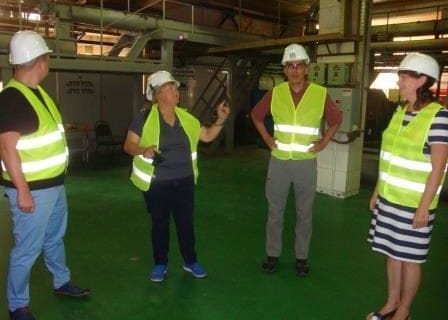
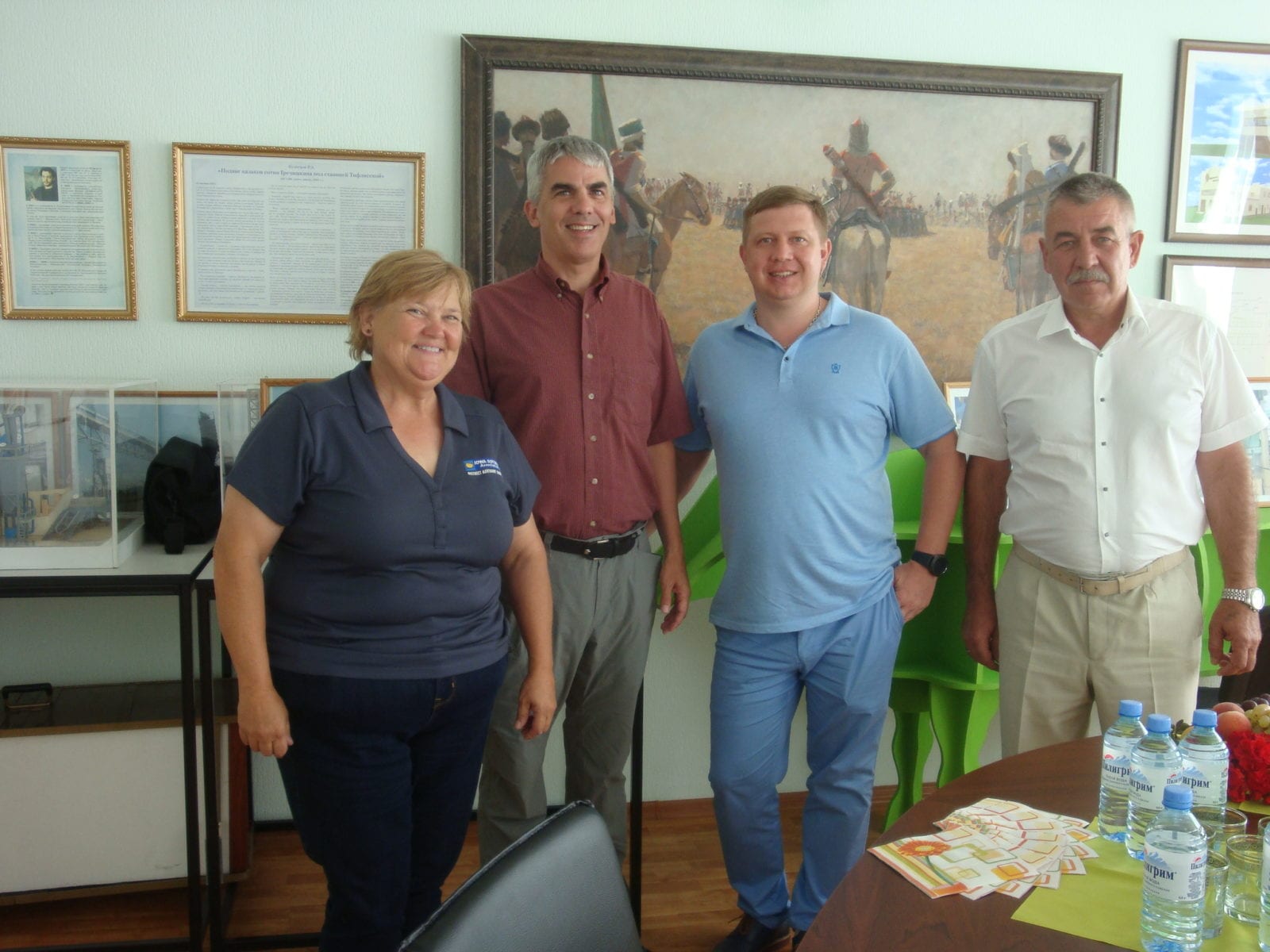
The company buys domestic soybeans, but is experiencing a shortage in supplies due to the high prices of local soybeans. This season, they had to purchase soybeans from far eastern Russia despite the poor logistics of delivering soybeans across the country. This season is unfavorable for local soybean farmers due to a drought in the southern regions of European Russia. The first supplies of soybeans for crushing began at the end of July but the quality of beans was poor.
The grower leaders learned a great deal from being introduced to the experience of Russian soybean farmers’ cooperative supplying raw materials to the facility. Ms. Hemmes told about the production of soybeans in the U.S. and talked about her Iowa farm.
JSC Center Soya produces compound feeds for horses, too. After visiting the soybean crushing facility, the USSEC delegation was taken to visit one of the company’s customers, a horse farm, Plant 711, which specializes in raising racehorses. The horse farm exclusively uses U.S. genetics, cooperating with U.S. horse breeders.
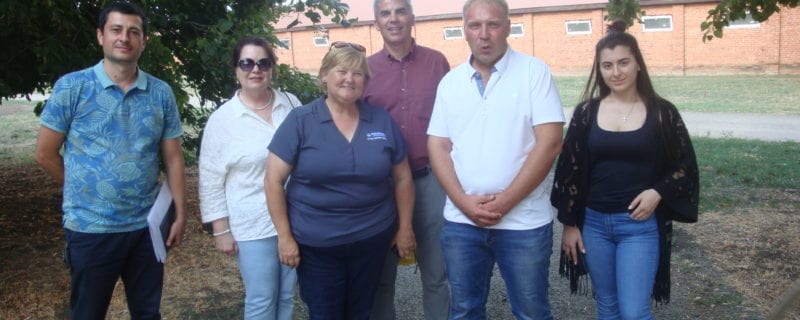
On the second day, the mission toured the soybean trial fields and had follow-up discussions with management and leading specialists of JSC Soevy Complex LLC (SOKO), one of Russia’s leading soybean breeders. The visit was accompanied with a number of questions and comments from both sides.
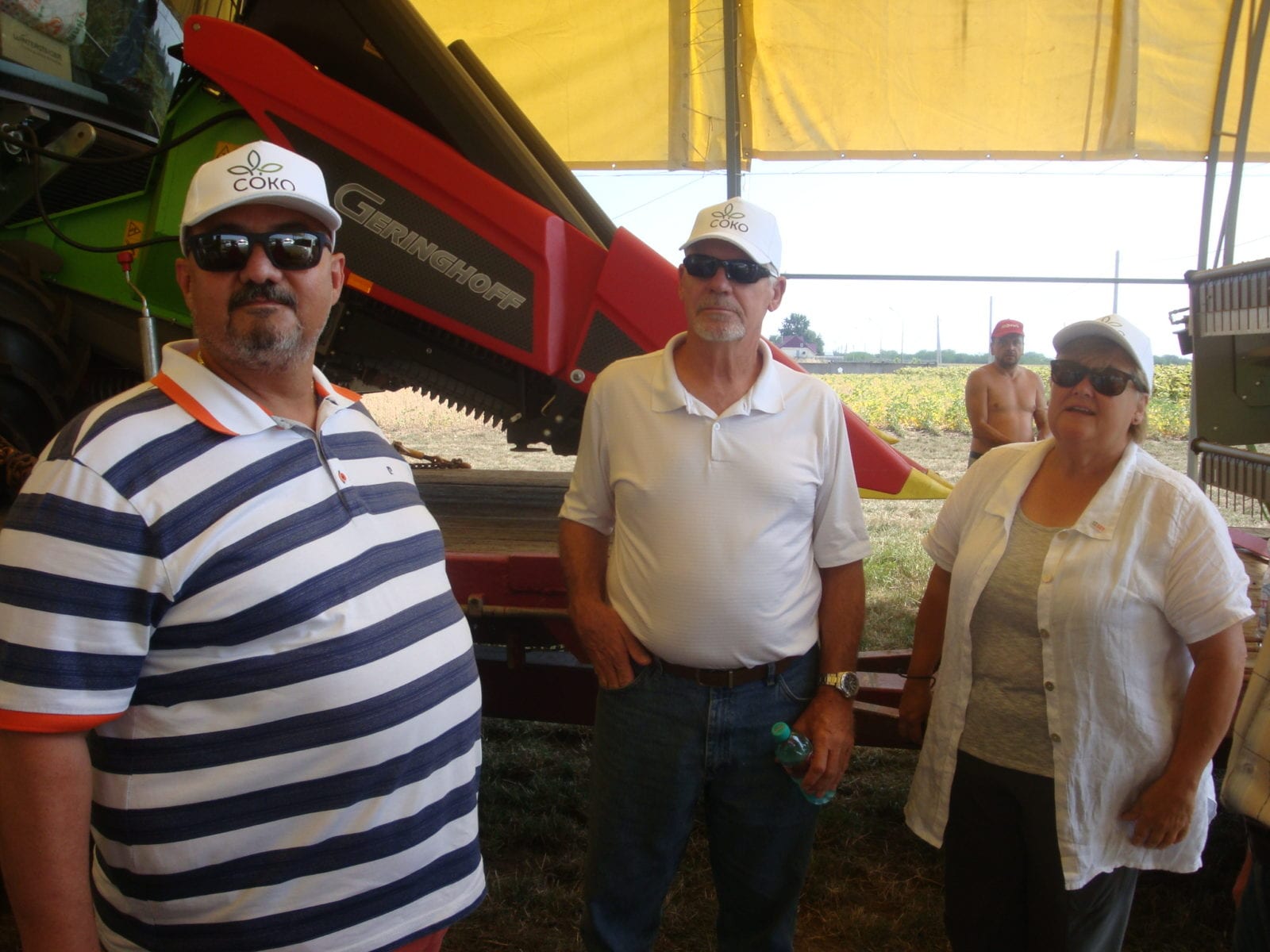
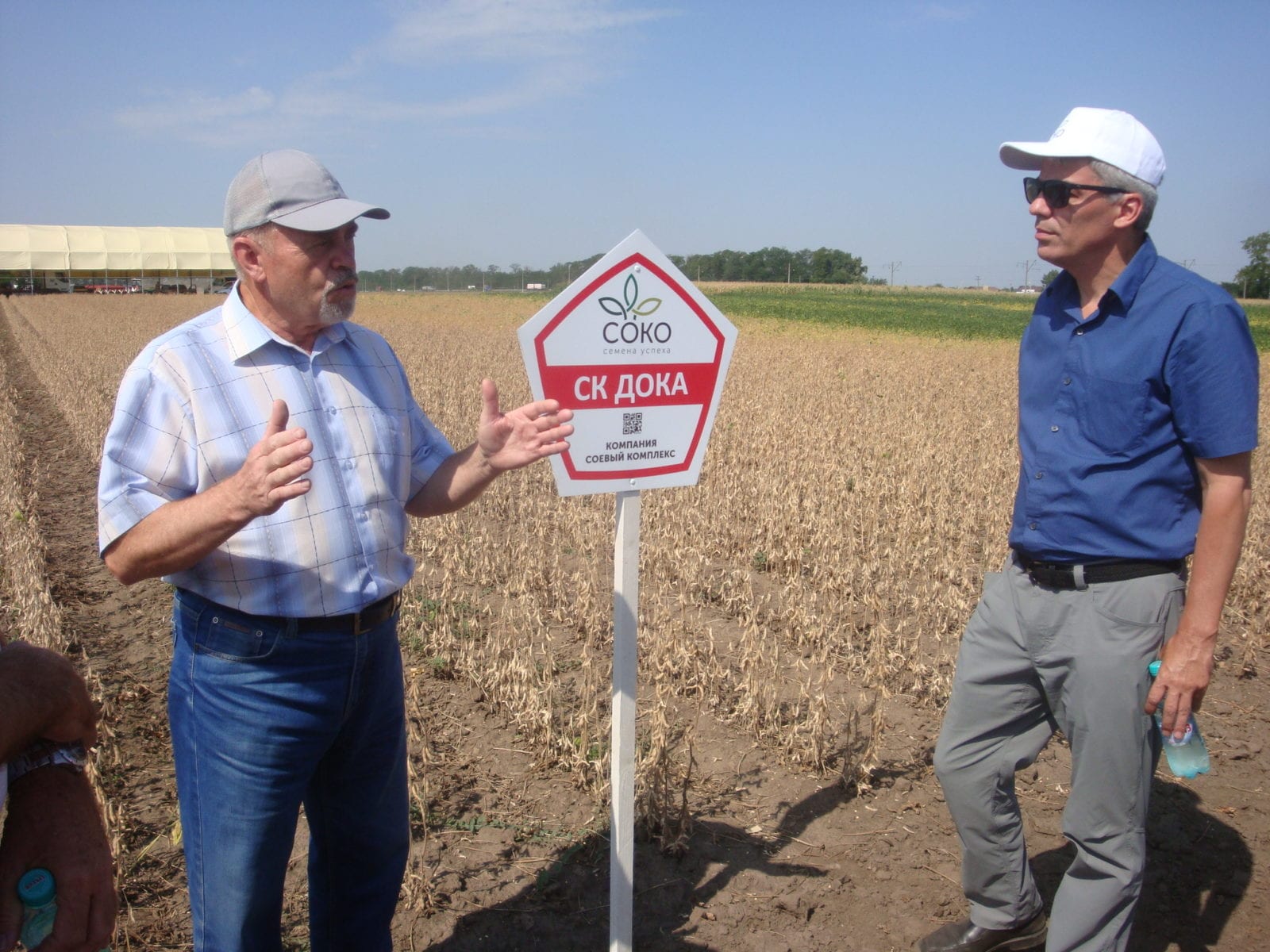

After heading back to Moscow, the USSEC team had a meeting with Vitaly Smirnov, quality director for Sodrugestvo Company in Kaliningrad, the largest soybean crusher in Russia, and discussed biotech issues dealing with the delays of registration of new GM varieties grown in the U.S. The company imports more than two million metric tons (MMT) of soybeans annually. The company is experiencing economic losses due to a temporary suspension of U.S. soybean imports imposed by Russia. Despite this problem, the process of registration in Russia of new GM soybean varieties grown in the U.S. should go on as the Russian market represents an evident potential for U.S. soybeans.
The interest of soy usage in feed formulations in Russia has steadily grown over the last few years due to the increasing development of the local poultry and pig industries and the growth of soybean crushing capacities of local oil mills.
In the current season, the harvested area of soybeans in Russia is estimated at the level of 2.7 million hectares with total production forecast as 3.7 to 3.8 million tons. The major soybean growing areas are located in the Amur region and Far East Russia. Transporting soybeans from these areas to main customers in European Russia is less economically favorable than shipping soybeans from North and South America.
The grower leaders’ visit to Russia was very fruitful and was used to network and gain a better understanding of and access to the Russian market.
